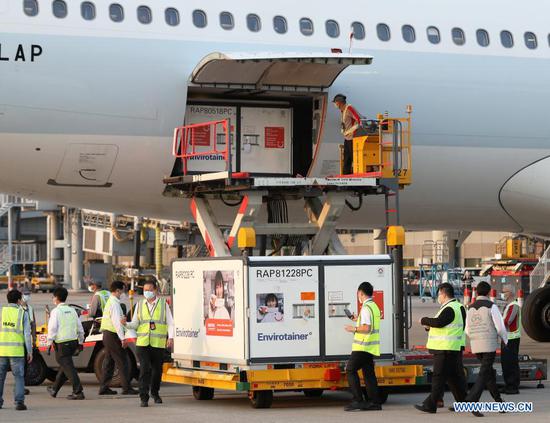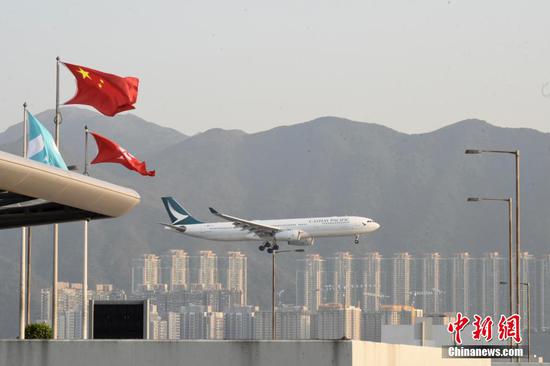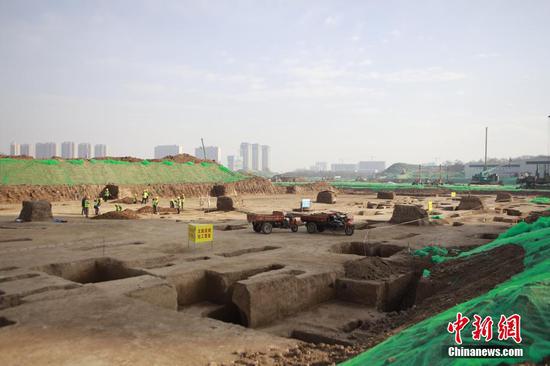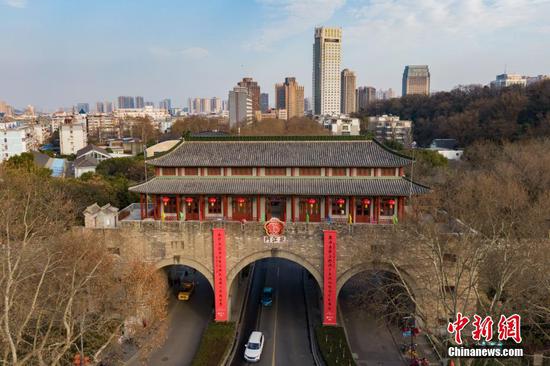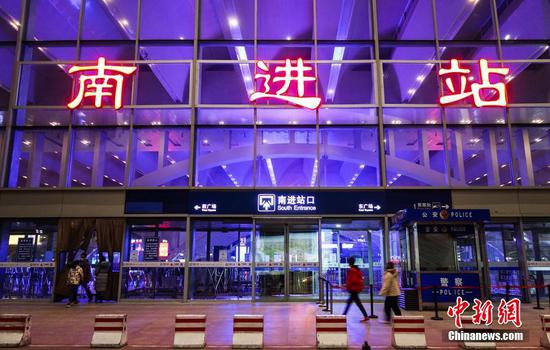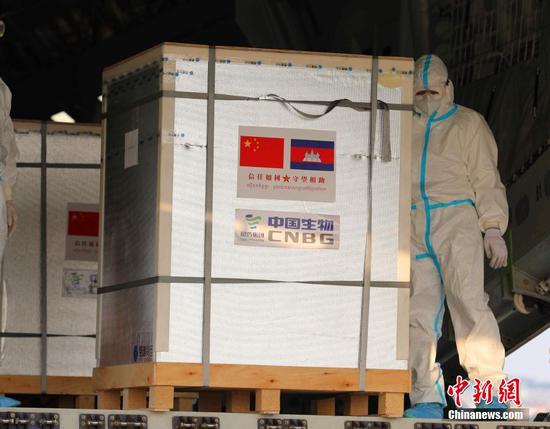
Staff members of China Mobile test the signals of the 5G base station built at an altitude of 6,500 meters at the advance camp of Mount Qomolangma in southwest China's Tibet Autonomous Region on May 21, 2020. (Xinhua/Jigme Dorje)
Four years ago, Peng Xiaobo, who had been engaged in the research, development and management of spacecraft technology for 25 years, established the Beijing Interstellar Glory Space Technology Co., Ltd., to pursue his dream of commercial spaceflight.
The startup has successfully launched many sounding rockets. Peng, CEO of the company, believes the value of the aerospace industry has not been fully tapped. "Our goal is to become a global leader in commercial spaceflight," he said.
Despite the limited scale of the company, its core competitiveness in the specific field has highlighted China's emerging "industries of the future," a new buzzword that points out the key direction of China's most recent round of industrial revolution.
Although there is yet a clear definition, experts believe that industries of the future share the features of boasting leading-edge technologies and the prospect of explosive growth.
China has accelerated the layout of this major cause with provinces and municipalities such as Beijing, Hebei and Anhui gearing up for developing their "future industries" by making use of local advantages.
PIONEERS SURGING
Origin Quantum, a 3-year-old startup focusing on quantum computers and related technologies, recently rolled out an operating system called Origin Pilot. The system will effectively improve the overall utilization of quantum chips and shorten the time it takes to put a new quantum computer into operation, according to experts.
The company is based in Hefei, capital city of Anhui province, now a hub for China's quantum technology. Yunfei Road where the company is located is dubbed "quantum street" by locals as it has been home to over 20 quantum technology startups.
Some 150 km east of Hefei, 10 5G-driven unmanned mining trucks were rumbling with full loads of iron ore in a mining field of Masteel (Group) Holding Co., Ltd., one of China's largest iron and steel complex in Ma'anshan, Anhui.
"Equipped with technologies such as laser radar, a satellite navigation system and 5G network, the truck can avoid obstacles, park precisely and be operated remotely, improve mining safety and production efficiency," said Yang Zhenyu, an on-site engineer with the Qingdao Huituo Intelligent Machine Co., Ltd that develops the trucks.
Since China kicked off the commercialization of 5G services in 2019, 5G technology has been embedded in intelligently connected factories, ports, driverless cars and various aspects of people's lives, with some 700,000 5G base stations in operation.
The country will further build more than 600,000 5G base stations in 2021 while accelerating the 5G coverage in major cities and advance co-construction and sharing, said Xiao Yaqing, minister of industry and information technology, at a work conference last December.
The ministry will form 20 typical industrial application scenarios and timely release 5G millimeter-wave frequency plans for some frequency bands, he added.
"The development of future industries offers a great opportunity for China to keep pace with the rapid global innovation," said Pan Jiaofeng, president of Institutes of Science and Development under the Chinese Academy of Sciences, adding that the emerging middle class and ground-breaking technologies will bring new opportunities for China's future industries.
BLOOMING THROUGHOUT THE COUNTRY
In the coming 15 years, China will implement a number of forward-looking and strategic major national science and technology projects in the frontline fields of artificial intelligence, quantum information, integrated circuits, life and health, brain science, breeding, aerospace science and technology, and deep Earth and ocean exploration.
Provincial-level regions are taking advantage of their specific resources to cultivate future industries, among which Beijing has been playing a leading role.
The national capital will gear its forward-looking planning toward future industries such as quantum information, new materials, artificial intelligence, satellite Internet and robotics, according to the city's outline for its development plan in the next five years and development goals through 2035.
It will build a research institute for future technological innovation and a center for the application of future technological achievements, and accelerate the development of key sub-sectors such as quantum computing, quantum communication and quantum precision measurement.
Shanghai, China's business and financial hub, will strengthen scientific research and strategic planning in sixth-generation communications, next-generation photonic devices, brain-computer fusion, hydrogen energy, stem cells and regenerative medicine, synthetic biology and new marine economy to lay a solid foundation for future industrial development.
Anhui would expand its first-mover advantage in new energy vehicles and intelligent connected vehicles, as part of the province's grand plan of building a world-class cluster of strategic emerging industries.
Hebei Province, which neighbors Beijing, will further make use of its already mature industrial chain and supply chain to promote the province-wide interconnection of 5G networks and advance the layout of future industrial chains such as blockchain and quantum communication, according to the provincial government.
Zhang Xiaofeng, an expert in the "Internet Plus" model and digital economy, said the development of future industries will accelerate China's transformation to an intelligent economy and the country's evolution to high-quality growth, ushering in the next long boom cycle.










